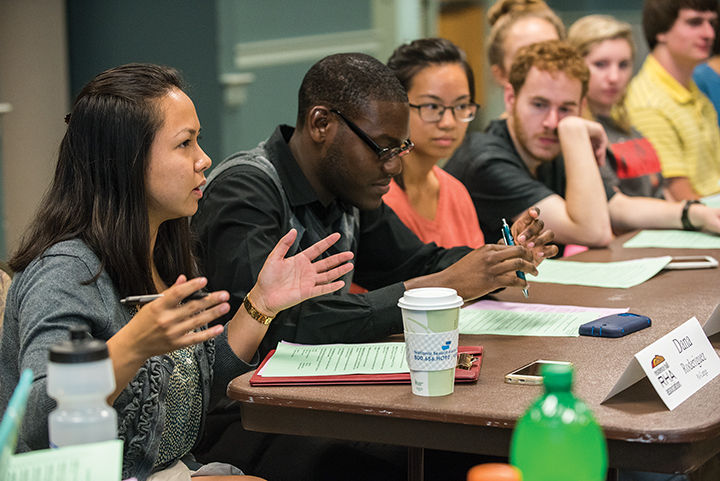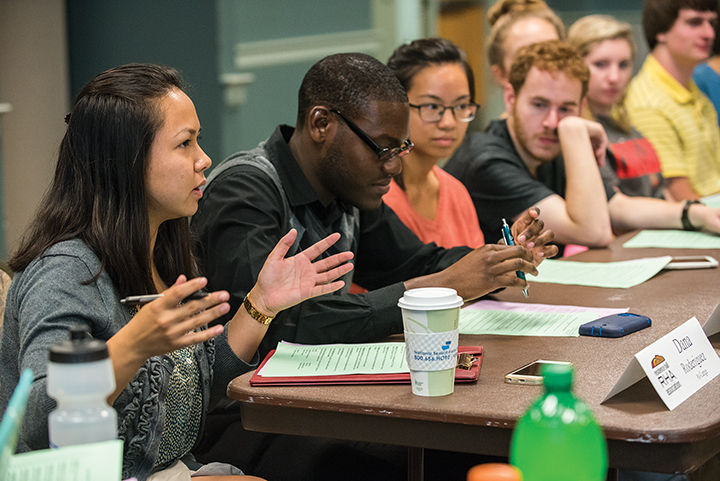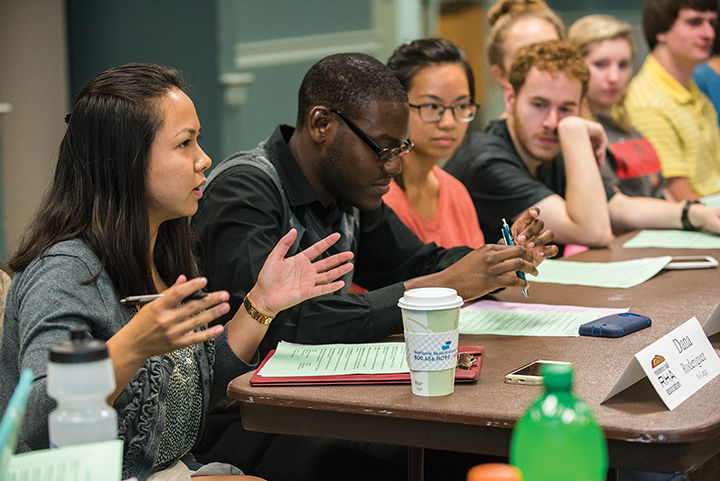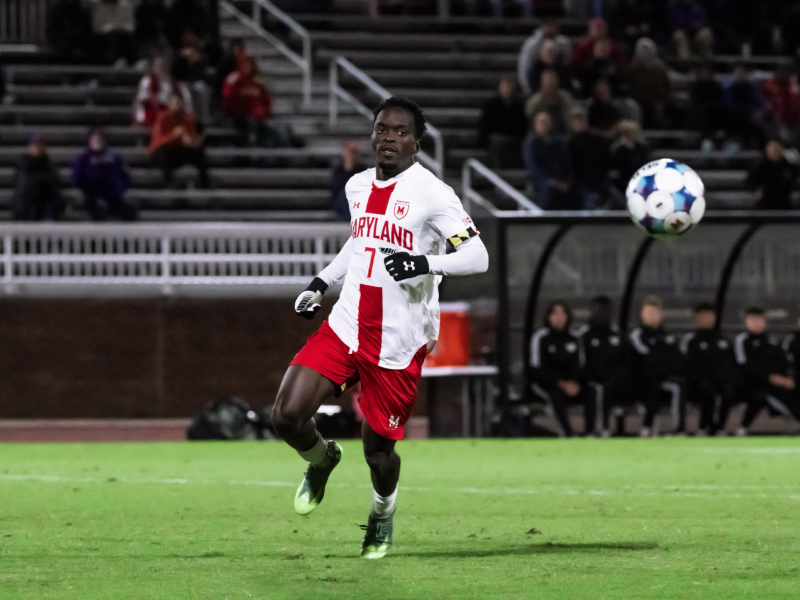The Residence Hall Association senate voted at a Tuesday night meeting in support of a resolution urging the University of Maryland to adopt and implement mandatory in-person sexual assault prevention training at orientation and at UNIV100: The Student in the University, a one-credit seminar for new students.
The resolution passed by a 36-1 vote.
READ MORE: Freshman orientation didn’t address UMD’s sexual misconduct policy
Steve Chen, the RHA student groups and organizations liaison, authored and presented the resolution. The junior biology and individual studies major said he believed there was room in the orientation and UNIV100 schedules to accommodate sexual misconduct training.
Chen cited personal experience and a nonscientific study he conducted of 94 on-campus students as backing for the resolution. While 54 percent of students felt the university’s online training was useful, 62 percent supported the creation of mandatory, in-person training, according to Chen’s survey.
READ MORE: UMD’s reported rapes at a high for the decade, officials say there is more willingness to come forward
“I think the most noninteractive way is sitting on a computer at home flipping through slides,” Chen said. “Something, anything that they do [in person] will be more interactive than the online version.”
Several RHA members expressed dissatisfaction with the current online survey and a desire for the university to improve its sexual misconduct education.
“The university should take this more seriously than just creating online training,” RHA Vice President Ashley Feng said. “By doing it in person, you are forcing people to face it head-on.”
RHA senator Harrison Cohn, a freshman government and politics major, was the sole vote against the resolution. He said he voted in opposition because he felt orientation should be predominantly focused on how students can get involved on the campus. He also expressed doubts regarding education’s effectiveness in reducing sexual assault.
READ MORE: New group trains to review sexual misconduct cases
During the meeting, the senate raised numerous questions for Chen, including what the training would look like, what the punishment would be for not completing it and whether it would cut other orientation programs.
Chen said he wants trained individuals to lead the discussions, although he noted he isn’t sure how to punish students who fail to complete the program. He added that there is enough free time in both orientation and UNIV100 to fit the training.
“The only thing I do remember [from UNIV100] was that someone from the sustainability office came in and talked about sustainability,” Chen said. “I imagine this would have a similar effect.”
The Student Government Association is pursuing similar legislation in an effort to make a unified voice to push this university to do more on sexual misconduct education, Chen said.
Beginning in 2014, students, faculty and staff have been required to complete the online sexual misconduct prevention training program, according to the resolution. Though the resolution states that “students are concerned with the effectiveness of online training,” this university’s Title IX training manager, Kevin Webb, said online training has gone well this year.
“The student response has been great,” Webb said. “The vast majority of new students have completed it and there will be additional training for returning undergraduates, which will be a shorter review that they’ll probably get next semester.”
Nevertheless, Webb voiced support for RHA’s resolution, saying the way to reach the overall goal of culture change on sexual assault will come from various efforts working together.
“Ultimately, when you’re talking about behavior change, in-person training is a more effective way of effecting that kind of change,” Webb said. “Online training tends to be more for notice, knowledge and awareness.”
CORRECTION: Due to a reporting error, a previous version of this story stated Steve Chen was a cell biology and genetics and economics major. He is a biology and individual studies major. The article has been updated.
CLARIFICATION: A previous version of this story stated the RHA would urge the university to adopt and implement mandatory in-person sexual assault prevention training at orientation and a one-credit seminar for new students. This seminar is UNIV100: The Student in the University and not a new class.
Dana Rodriguez, senator-at-large, speaks at a Residence Hall Association meeting on Sept. 29 in Stamp Student Union.
Dana Rodriguez, senator-at-large, speaks at a Residence Hall Association meeting on Sept. 29 in Stamp Student Union.





